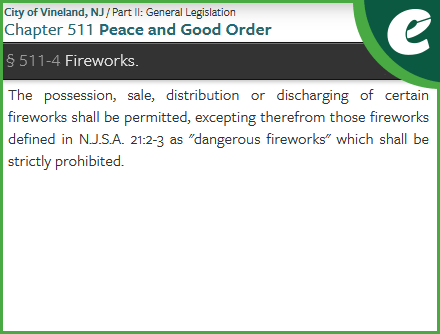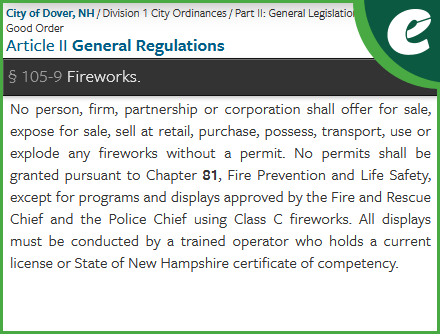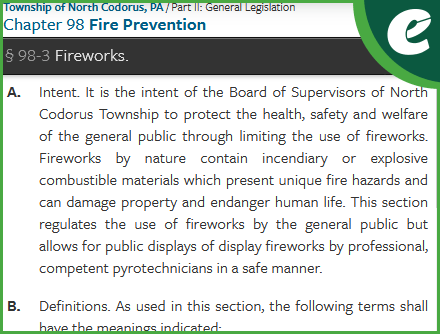Fireworks used to be reserved for major holidays and community events. But over the past several years, an increasing number of states have made fireworks more readily accessible for individual use. Citizens nationwide have voiced concerns about increased noise, fire safety issues, and concern for the effect on veterans with PTSD as well as some pets. In response, many municipalities are now considering what’s best for their communities and are legislating accordingly.
Sparking complaints
2020 wasn’t just the year of the COVID-19 pandemic, it was also the year of fireworks. Cities across the country reported a higher number of complaints of illegal fireworks compared with previous years, some up to 700%. Local governments began setting up special investigative task forces to find out why there was such an escalation.
Some attributed the increase to the impact of the pandemic lockdowns and cancelled community events. As COVID-19 cases began spiking, people were told to stay at home and large-scale celebrations were called off. But staying at home didn’t mean they wouldn’t still engage in revelry. On the contrary, fireworks sales skyrocketed as families looked for ways to put on their own displays.
What’s the problem?
Aerial or propulsion fireworks have had a long tradition around the world as grand colorful celebratory displays. But to some, the loud bangs and bright lights can be distressing. During 2020, articles and commentaries flooded papers and internet news resources regarding the perceived uptick in local pyrotechnics use and expressing a wide-variety of reasons for concern.
For some, it was a consistent interruption of sleep. Fireworks are, of course, meant as nighttime entertainment to light up the dark sky. So on top of already fitful sleeping due to the inherent stresses of dealing with a pandemic, nightly fireworks displays by neighbors only worsened the inability to get even forty winks.
For combat veterans and those who have suffered gun violence, the battle against fireworks has long posed a challenge, especially for those with post-traumatic stress syndrome (PTSD). Multiple studies have shown that the loud, unexpected bangs mimics the combat scenario of incoming enemy fire and explosions that can trigger those with PTSD.
Additionally, it’s known that pets are more sensitive to loud noises, flashing lights and strong smells. Some pets become so frightened by the noise and commotion of fireworks that they will run away from otherwise familiar environments and people.
Fireworks and fire safety
But noise and bright light are not the only factors drawing trepidation when it comes to having aerial fireworks in the hands of non-professionals. Fire safety is at the top of the list as well.
According to the National Fire Protection Association, fireworks start approximately 19,000 fires and send about 9,000 people to emergency rooms annually. Children ages 10–14 had the highest rate of fireworks injury, with more than one-third (36%) of the victims of fireworks injuries under age 15.
What can be done to protect our communities?
Communities concerned about the rise in pyrotechnics use by individuals can legislate to regulate and restrict fireworks activity. Common methods include amending noise ordinances, setting hours for use, enacting zoning and other location-related policies, and setting fire safety rules.
Useful examples from the eCode360® Library
If your community is interested in legislating to limit individual or non-professional use of fireworks, here are some useful examples that can be found in our eCode360 Library:
Fireworks Amendment – City of Papillion, NE (PDF)
Updating Municipal Codes is Vitally Important
As local governments continue to adjust and transform to the ever-shifting digital needs of our citizens, keeping municipal codes updated has become more essential than ever. It’s important to sustain orderly and accessible knowledge of the most current regulations and resolutions in a timely manner.
We encourage our clients to submit code updates as soon as possible to make sure constituents and local government officials are always referencing and working with the most up-to-date resources. Clients can send legislation to [email protected].
Best Practices for Managing Your Codification Budget
Many of our client communities find it helpful to be on a code update schedule to help manage their budgets throughout the year. Our Client Care Advocates can work with you and explain the options and benefits of scheduled code updates. Give them a call at 800.836.8834 or send an email to [email protected]. They’d be happy to help or answer any other codification questions you might have.





